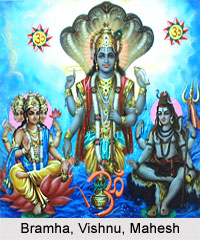 Paran in Tamil is a heavenly being. It corresponds with Brahma, or Para Brahma of the Upanishads. In the South there has been a controversy whether Vishnu or Shiva is Paran, or the Supreme Being.
Paran in Tamil is a heavenly being. It corresponds with Brahma, or Para Brahma of the Upanishads. In the South there has been a controversy whether Vishnu or Shiva is Paran, or the Supreme Being.
This article is a stub. You can enrich by adding more information to it. Send your Write Up to content@indianetzone.com












